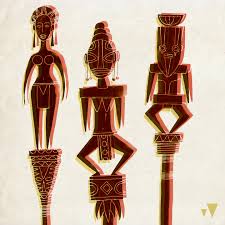Few countries lend themselves to musical fusion better than Brazil. This is the potential unleashed by Bixiga 70, the São Paulo based group dedicated to celebrating Brazil’s African past by channelling the spirit of Fela Kuti. The 70 is homage to The Afrika 70, Fela’s house band of that legendary decade. Bixiga is the group’s local neighbourhood. Fela tribute bands are commonplace, but in true Brazilian style Bixiga 70 use afrobeat more as a musical ingredient than a restrictive identity.
Bixiga 70’s sparsely named third album, III, again celebrates the African influences that usually surface in Afro-Brazilian culture, commonly manifested in the polyrhythmic drumming that survived in transit from Africa during the Trans Atlantic slave trade. Fela Kuti shares a similar root here. It’s the drums that make afrobeat great, so it’s promising to hear Bixiga 70 percussionists Gustávo Gék and Rômulo Nardes thumping out their worth across a variety of Brazilian, Caribbean and African adaptations. Brazil’s rich history of assimilation means that something new is created, and from the slow grooves of opening track ‘Ventania’ onwards, III proves far too confident to rely on the kind of imitations that must be tempting for an afrobeat band to fall back on.
The jigsawed coastlines of Brazil and Angola represent a musical path less synonymous with afrobeat. Semba music – that gloriously upbeat snapshot of the Angolan capital, Luanda, in festival mode – is a wild party like no other; picture a Brazilian carnival and then multiply it by ten. Hints of semba come through in Bixiga 70’s guitar work, with a Portuguese cultural solidarity in the two nations making the link natural. For those unaware of semba, Bixiga 70 will unlock one of Africa’s most criminally overlooked genres.
Other elements pulled from the travels of Bixiga’s ten members include cumbia from Colombia, Malinké drumming from Guinea, Cuban blaxploitation riffs- most apparent on the deliciously funky ‘Niran’- and the complex instrumental rhythms of Ethio-jazz. Fundamentally though it’s the horns that dictate the pace, and this is where Fela Kuti’s Yoruba influence is most obvious. The horns on III blast out with serious swagger. A tight backing of trombones and saxophones give each track irresistible danceability; Kuti would probably look to the horns as a litmus test of afrobeat quality, and in this regard Bixiga 70 shoot off the scale.
<div class="fb-comments" data-href="http://thequietus.com/articles/18828-bixiga-70-iii-review” data-width="550">


